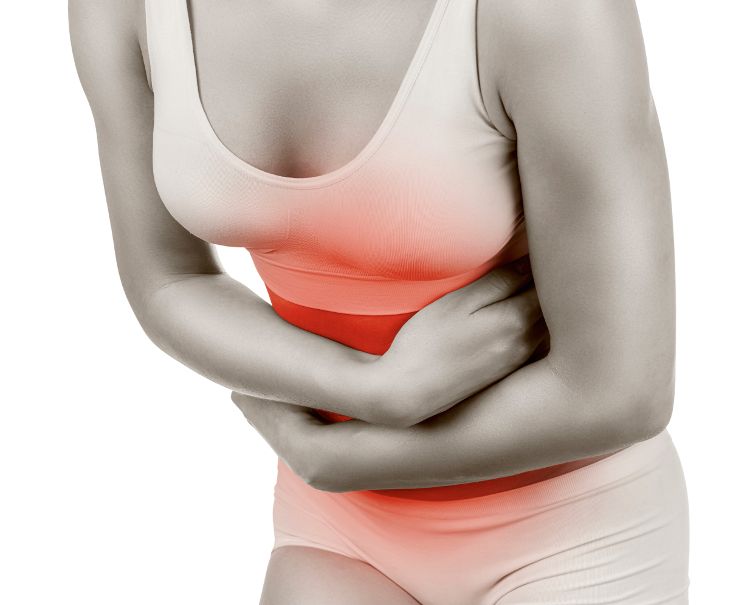Blend of turmeric and Indian frankincense may help relieve menstrual cramps according to a recent study
A recent study found that a blend of turmeric and Indian frankincense manufactured by Arjuna Natural Pvt. Ltd, called Rhuleave-K, may alleviate menstrual cramps in women.
Photo © iStockphoto.com/Artem_Furman

A recent study1 found that a blend of turmeric and Indian frankincense (Boswellia serrata) manufactured by Arjuna Natural Pvt. Ltd. (Kerala, India), called Rhuleave-K, may alleviate menstrual cramps in women. In the study, sixty women with primary dysmenorrhea, which is characterized by intense cramping in the lower abdomen and pelvic zone, were randomized to receive either placebo or two 500 mg softgels contain turmeric extract, Boswellia serrata extract and sesame oil. When their menstrual pain reached five on a numerical rating scale, subjects were advised to take two capsules of their allocated product.
Researchers evaluated menstrual pain every 30 minutes for six hours. Results showed that subjects taking the herbal blend saw a mean total pain relief of 12.6 times that of placebo, with the difference in pain intensity found to be statistically significant at all time points. At six hours, the pain intensity in the group taking the herbal blend was a significant 20.6 times better than the placebo group.
“The excellent results we witnessed in the previous studies on musculoskeletal pain inspired us to see if we can extend Rhuleave-K’s benefits to other common forms of pain,” said Benny Antony, PhD, joint managing director for Arjuna Natural, in a press release. “Menstrual pain is a relentless burden for countless women globally. Many depend on over-the-counter NSAIDs to get pain relief. Yet more and more women are turning to natural therapies as they seek a comprehensive and enduring solution for menstrual pain relief. Rhuleave-K has the potential to offer an easy and rapid natural solution to this common issue, our company is dedicated to empowering women to take control of their well-being through natural solutions.”
According to the researchers, the secretion of hormone-like compounds called prostaglandins into the uterine tissue, particularly anti-inflammatory mediators such as PGF2 and PGE3, play a substantial role in uterine contractions. While requiring more research to verify, the authors believe that the suppression of PGE2 formation by boswellic acids may “contribute to the anti-inflammatory effectiveness of boswellia and may constitute a biochemical basis for their use in alleviating pain in dysmenorrhea.”
Other research cited by the study’s authors also indicate that curcumin, found in turmeric, may have estrogenic effects that help inhibit uterine contractions, and the active compound in sesame, called sesamin, modulate “hormone status to favor an environment that can antagonize estrogen bioavailability and metabolism.” As such, the researchers conclude that the “unique composition of the test product relieves menstrual pain by selectively controlling the hormones that sense pain and controlling the contraction of the uterus to effectively shed the endometrium (lining) in a controlled manner.”
Given the study’s small size without a standard control group, the authors say that future studies will have a larger sample size, longer duration, and include a control group in the study design to improve the generalizability of the findings.
Reference
- Agarwal, D.; Chaudhary, P. Effect of Turmeric–Boswellia–Sesame Formulation in Menstrual Cramp Pain Associated with Primary Dysmenorrhea—A Double-Blind, Randomized, Placebo-Controlled Study. J. Clin. Med., 2023, 12 (12): 3968. DOI: 10.3390/jcm12123968










